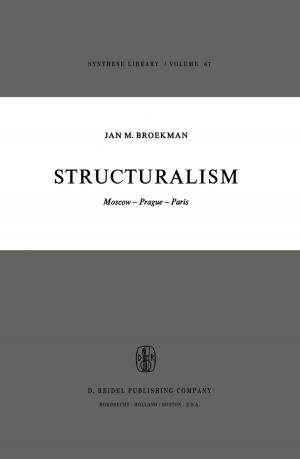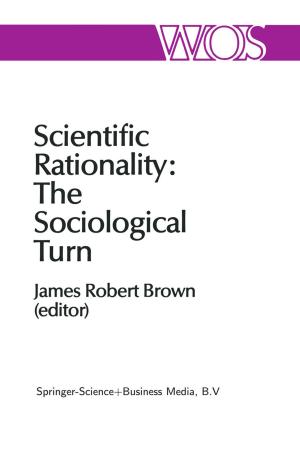The Management of Uncertainty: Approaches, Methods and Applications
Business & Finance, Management & Leadership, Operations Research| Author: | ISBN: | 9789400944589 | |
| Publisher: | Springer Netherlands | Publication: | December 6, 2012 |
| Imprint: | Springer | Language: | English |
| Author: | |
| ISBN: | 9789400944589 |
| Publisher: | Springer Netherlands |
| Publication: | December 6, 2012 |
| Imprint: | Springer |
| Language: | English |
For thirty years, the literature on decision-making and planning has been divided into two camps : work premised on rational models of choice and work designed to discredit such models. The sustained critic of fully rational decision-making theories has al ready a long history and a constant message to deliver : in practice, consequential decision-making hardly fulfills the canons of perfect rationality. There is also evidence that decision-making and planning are not unitary processes. Although the concept of "decision-making" connotes the idea of a single process, making a single choice involves a complex of processing tasks : structuring the problem, finding alternatives worth considering, deciding what information is relevant, assessing various consequences, and a variety of others. The aim of this volume is to bring together and try to inter relate some of the concepts and relevant knowledge from various disciplines concerned with one important aspect of this complex process : the management of uncertainty. It is hardly necessary to reiterate the case made by numerous authors about our changing and increasingly uncertain world. Suffice it to say here that it is uncertainty about the future, and in many cases about the past and the present also, which makes decision-making and planning so difficul t. The management of uncertainty may be defined as the way in which uncertainty is treated and processed in decision-making.
For thirty years, the literature on decision-making and planning has been divided into two camps : work premised on rational models of choice and work designed to discredit such models. The sustained critic of fully rational decision-making theories has al ready a long history and a constant message to deliver : in practice, consequential decision-making hardly fulfills the canons of perfect rationality. There is also evidence that decision-making and planning are not unitary processes. Although the concept of "decision-making" connotes the idea of a single process, making a single choice involves a complex of processing tasks : structuring the problem, finding alternatives worth considering, deciding what information is relevant, assessing various consequences, and a variety of others. The aim of this volume is to bring together and try to inter relate some of the concepts and relevant knowledge from various disciplines concerned with one important aspect of this complex process : the management of uncertainty. It is hardly necessary to reiterate the case made by numerous authors about our changing and increasingly uncertain world. Suffice it to say here that it is uncertainty about the future, and in many cases about the past and the present also, which makes decision-making and planning so difficul t. The management of uncertainty may be defined as the way in which uncertainty is treated and processed in decision-making.















